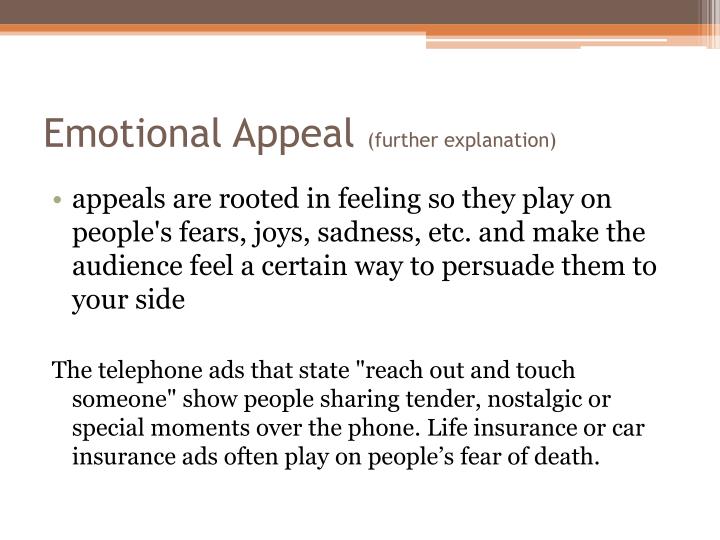

A euphemism is a substitute neutral-sounding word used to forestall negative reactions. If an argument uses a mild word to describe something horrific, that means the argument can’t connect its emotional appeal to any logical justification. Photo by Nick Youngson of Alpha Stock Images , licensed CC BY-SA 3.0.Įmotional appeals should not mislead readers about the true nature or the true gravity of an issue. Writers are responsible for thinking through their intuitive appeals to emotion to make sure that they are consistent with their claims. The emotions should be attached to ideas that logically support the argument. To be legitimate, emotional appeals need to be associated with logical reasoning. A straw man argument offers a distorted version of the other side to make the other side seem frighteningly extreme. Arguments that focus on a “red herring,” for example, distract from the real issue to focus on something juicier.

The writer chose the faulty reasoning because they thought it would affect readers emotionally. Many of the fallacies we have already looked at are so common because the illogical form of the argument makes a powerful appeal. In Chapter 4, we looked at fallacies, or problems with arguments’ logic. Or, a writer may create a problem with the logic, knowingly or unknowingly, because they cannot resist including a particular strong emotional appeal.

If a writer knows there is a problem with the logic, they may use an emotional appeal to distract from the problem. But there is a reason emotional appeals have a dubious reputation: they are often abused. We made the case at the beginning of this chapter that emotion is a legitimate part of argument. Listen to an audio version of this page (6 min, 58 sec):


 0 kommentar(er)
0 kommentar(er)
